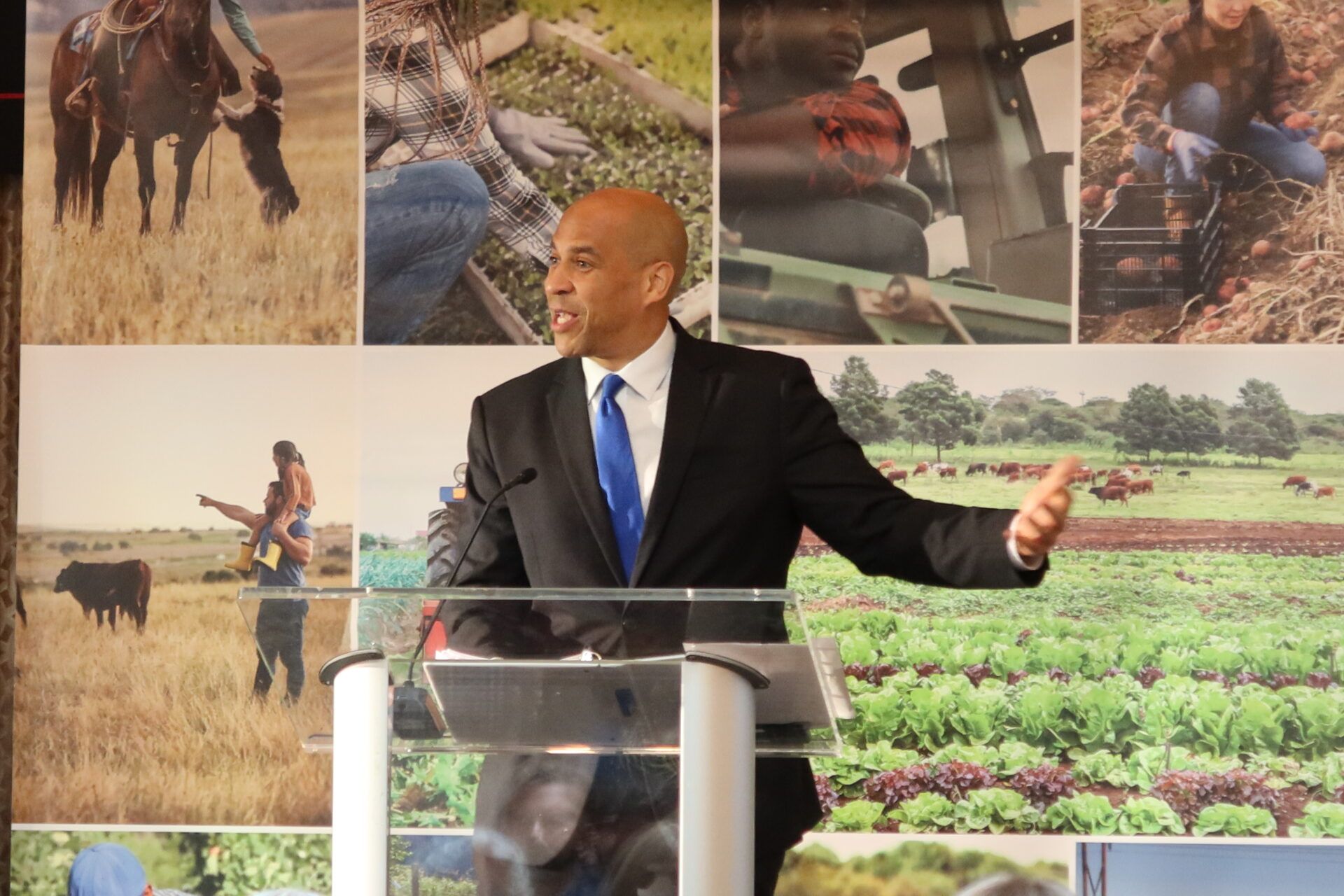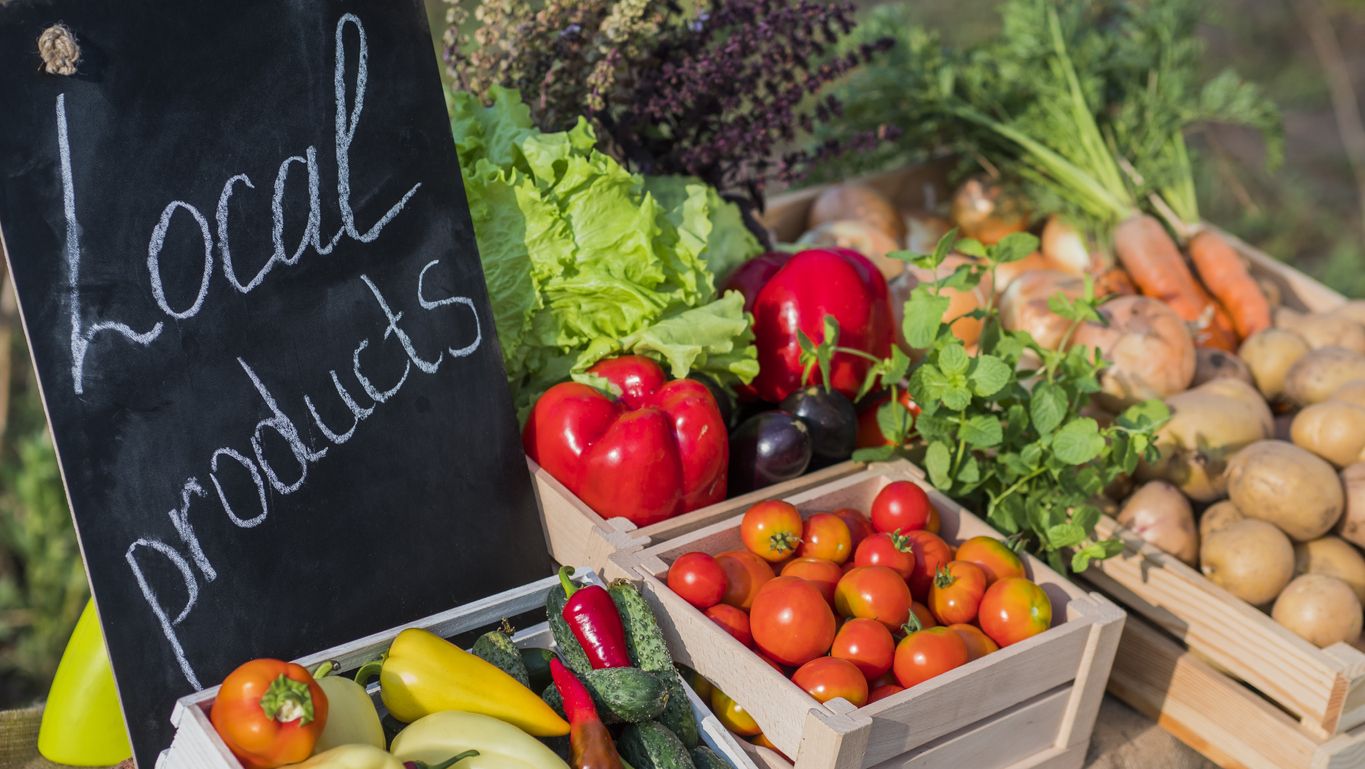Editor’s Note: Dee Laninga is senior writer and content creator for advocacy group Farm Action. Laninga works to raise awareness about the organization’s “fight against monopolistic corporate control over our food and farming system” and drive engagement towards equitable, sustainable, and family farm-centered solutions, with a particular focus on the upcoming 2023 Farm Bill.
The views expressed in this guest commentary are the author’s own and do not necessarily reflect those of AFN.
America’s farmers and ranchers have long grown and raised the foods we need to thrive. However, the evolution of agricultural policies that prioritize industrialization and corporate consolidation has resulted in a food and farm system that traps American farmers in a vicious cycle. Nowadays, our federal support programs push farmers to grow feed grains for industrial livestock operations, instead of nutritious food for Americans.
But there is hope. For the first time, a large coalition has formed across sectors: farmers and ranchers joined academics, faith-based organizations, and advocates for public health, the environment, and animal welfare to showcase the need for change in the 2023 Farm Bill, getting together at the Food Not Feed Summit in Washington, D.C. a few weeks ago.

By showing Congress what really matters in our food system, we are working to fundamentally change America’s agriculture policies. By shifting our priorities to the production of healthy food for our communities, rather than feed for industrial livestock, we can revitalize America’s heartland and the farmers who inhabit it.
The official government dietary guidelines recommend we fill 50% of our plates with fruits and vegetables. Yet in 2019, only 4% of federal farm support dollars went toward their production. Meanwhile, 30% of farm support dollars went to domestic meat, poultry, eggs, and feed — benefitting multinational corporations that need feed for industrial livestock production. These policy choices have yielded an unbalanced agricultural system, with devastating implications.
The United States Department of Agriculture (USDA) recognizes “that poor nutrition is a leading cause of illness in the United States, associated with more than half a million deaths per year. It is linked with increased risk of obesity, diabetes, cancer, and heart disease as well as broader impacts including higher health care costs and decreased productivity.” The 2023 Farm Bill can address poor nutrition head-on, and make meaningful improvements in the public health outcomes of Americans.
Instead of standing idly by as 90% of Americans fall below the Recommended Daily Allowance (RDA) of vegetables and 80% fall below the RDA of fruit, Congress should seize this opportunity to shift farm support dollars towards the very vegetables and fruits they recommend we consume. Additionally, shifting these subsidies could also support the production of nuts, legumes, mushrooms, cereal grains, and the raising of regenerative livestock. This would allow farmers to profitably grow food for their communities while providing the foods we need to lead healthy lives.
Recent polling, conducted by GQR on behalf of the Johns Hopkins Center for a Livable Future (CLF) and in collaboration with Farm Action, shows that there is overwhelming bipartisan support for a 2023 Farm Bill that prioritizes sustainability and healthy foods. Some 88% of respondents report that it is a high priority for food to be produced sustainably, ensuring a supply of healthy foods both today and in the future. And 78% of respondents believe in prioritizing healthy and sustainable food for Americans over feed for industrial livestock. It is clear from these findings that Americans are hungry for food system reform. Now, it is time for the government to turn our spending priorities right side up. By aligning our farm support dollars with our dietary recommendations, we can empower farmers and ranchers to grow healthy foods and raise livestock regeneratively.
Farmers and ranchers should be able to choose what foods to grow and raise that are best for their communities. Unfortunately, current farm bill policy places farmers in an impossible situation: Because U.S. farm subsidies favor commodity crops like corn and soybeans, many farmers cannot afford to grow more nutritious food for humans. This leads to a market flooded with cheap corn and soybeans, which multinational meat conglomerates buy at below the cost of production to make cheap feed for their industrial livestock. The less they have to spend on feed, the higher their profits — to the tune of billions. Meanwhile, their operations hollow out rural America and pollute the land, air, and water.
This coalition is demonstrating the fundamental changes needed in the 2023 Farm Bill. Elected officials have an opportunity to create a regenerative and resilient agricultural system for the family and independent farmers that are harvesting a healthier future for all.
This is why Farm Action, along with this first-of-its-kind coalition, convened in Washington D.C. for the Food Not Feed Summit — to illustrate the changes our food system needs. And, with champions in Congress, we can establish a Fair 2023 Farm Bill: an opportunity to create a fair, inclusive, and competitive agricultural system.





